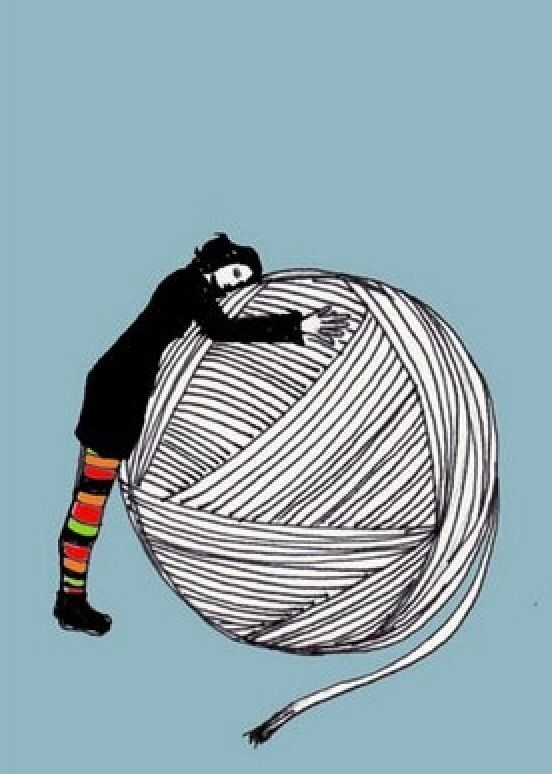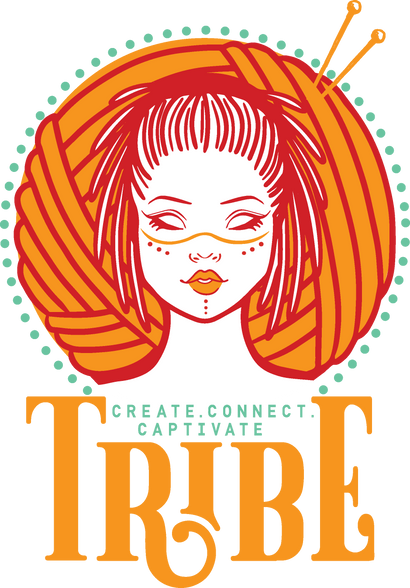GLOBAL SHIPPING - SEE LAST XMAS SHIP DATES HERE
GLOBAL SHIPPING - SEE LAST XMAS SHIP DATES HERE
Yarn
- Artyarns
- Biches & Bûches
- Blue Sky Fibres
- ByLaxtons
- Camarose
- Clinton Hill Cashmere
- Chroma Nima
- Coop Knits
- Circus Tonic
- Di Gilpin
- dLana
- einrúm
- Galler Yarns
- Garthenor
- Gepard
- Ginger Twist
- Habu Textiles
- Holst Garn
- Hot Butter Yarns
- Illimani
- Isager
- Jillybean Yarns
- Juniper Moon
- KAOS Yarn
- Kelbourne Woolens
- Knit Collage
- Kokon
- Kokon Bleu
- Krea Deluxe
- Kremke Soul Wool
- Lichen & Lace
- Lithuanian Linen
- Manos del Uruguay
- Mrs Moon
- Natissea
- Noro
- Paca La Alpaca
- Pascuali
- Pickles
- Qing Fibre
- RiverKnits
- Schoppel-Wolle
- Schwedenrot Yarns
- Swans Island
- The Fibre Co
- The Raw Wool Company
- The Urban Purl
- Trava & Wool
- Tribe Yarn
- Uist Wool
- Undyed
- Urth Yarns
- Vinnis Colours
- Walcot Yarns
- West Yorkshire Spinners
- Wooldreamers
- Artyarns
- Biches & Bûches
- Blue Sky Fibres
- ByLaxtons
- Camarose
- Clinton Hill Cashmere
- Chroma Nima
- Coop Knits
- Circus Tonic
- Di Gilpin
- dLana
- einrúm
- Galler Yarns
- Garthenor
- Gepard
- Ginger Twist
- Habu Textiles
- Holst Garn
- Hot Butter Yarns
- Illimani
- Isager
- Jillybean Yarns
- Juniper Moon
- KAOS Yarn
- Kelbourne Woolens
- Knit Collage
- Kokon
- Kokon Bleu
- Krea Deluxe
- Kremke Soul Wool
- Lichen & Lace
- Lithuanian Linen
- Manos del Uruguay
- Mrs Moon
- Natissea
- Noro
- Paca La Alpaca
- Pascuali
- Pickles
- Qing Fibre
- RiverKnits
- Schoppel-Wolle
- Schwedenrot Yarns
- Swans Island
- The Fibre Co
- The Raw Wool Company
- The Urban Purl
- Trava & Wool
- Tribe Yarn
- Uist Wool
- Undyed
- Urth Yarns
- Vinnis Colours
- Walcot Yarns
- West Yorkshire Spinners
- Wooldreamers
Notions, etc
- America & Beyond
- Anna & Juan
- Ashford Wheels & Looms
- Atenti
- Beadbags
- Blue Sky Fibers
- ChiaoGoo
- Cocoknits
- Debbie Abrahams Beads
- Geo-metry
- Hartiful
- It's A Stitch Up
- JUL Designs
- Kelmscott Designs
- KnitPro
- Lantern Moon
- Little Beau Sheep
- LYKKE
- Lyn Roberts
- Merchant & Mills
- Pom Maker
- Re:Designed
- Second Cashmere
- Soak
- Socko
- Studio Emma
- TextileGarden
- TJFrog
- TOFT
- Tulip
- America & Beyond
- Anna & Juan
- Ashford Wheels & Looms
- Atenti
- Beadbags
- Blue Sky Fibers
- ChiaoGoo
- Cocoknits
- Debbie Abrahams Beads
- Geo-metry
- Hartiful
- It's A Stitch Up
- JUL Designs
- Kelmscott Designs
- KnitPro
- Lantern Moon
- Little Beau Sheep
- LYKKE
- Lyn Roberts
- Merchant & Mills
- Pom Maker
- Re:Designed
- Second Cashmere
- Soak
- Socko
- Studio Emma
- TextileGarden
- TJFrog
- TOFT
- Tulip

Patterns
- amirisu
- Anna Maltz
- Artyarns
- Biches & Bûches
- Blue Sky Fibers
- Clinton Hill Cashmere
- Cocoknits
- Collingwood-Norris
- Coop Knits
- Di Gilpin
- einrúm
- Erika Knight
- Isager
- KAOS Yarn
- Kate Davies Designs
- Kelbourne Woolens
- Laine Magazine
- Making Magazine
- Manos del Uruguay
- Marie Wallin
- Moorit Magazine
- Mrs Moon
- Nancy Marchant
- Never Not Knitting
- Noro
- Pascuali
- Pom Pom Press
- Quince & Co.
- Renée Callahan
- Shetland Wool Adventures
- Swans Island
- SweetGeorgia
- The Fibre Co
- TOFT
- Trava & Wool
- Walcot Yarns
- Westknits
- West Yorkshire Spinners
- Yarn Journal
- Yarntelier
- amirisu
- Anna Maltz
- Artyarns
- Biches & Bûches
- Blue Sky Fibers
- Clinton Hill Cashmere
- Cocoknits
- Collingwood-Norris
- Coop Knits
- Di Gilpin
- einrúm
- Erika Knight
- Isager
- KAOS Yarn
- Kate Davies Designs
- Kelbourne Woolens
- Laine Magazine
- Making Magazine
- Manos del Uruguay
- Marie Wallin
- Moorit Magazine
- Mrs Moon
- Nancy Marchant
- Never Not Knitting
- Noro
- Pascuali
- Pom Pom Press
- Quince & Co.
- Renée Callahan
- Shetland Wool Adventures
- Swans Island
- SweetGeorgia
- The Fibre Co
- TOFT
- Trava & Wool
- Walcot Yarns
- Westknits
- West Yorkshire Spinners
- Yarn Journal
- Yarntelier

OHHHHH.... yarn. Sigh.
Noro Silk Garden
-
The most popular of the vast Noro range, Silk Garden is a lustrous blend of silk, fine kid mohair and beautiful, soft lamb's wool.
As with other Noro classics, this single ply yarn is instantly recognisable as a Noro with it's stunning range of colours in self-striping, variegated shades. Because of the blend of high quality fibres, there's even more depth and nuance in this yarn, and it's wonderful fun to work with.
Silk Garden is soft enough to wear right on the skin, and has wonderful drape and lustre. As with other Noro yarns, it has a hand-spun, thick & thin quality, which just adds even more to the character of this amazing yarn.
We've picked out the best colourways for you from a huge, and constantly updating palette of possibilities. If you haven't tried Silk Garden yet, you should!
For over 40 years Noro has produced the most beautiful, inimitable Organic, ecologically responsible, hand-dyed and hand-spun yarns. We encourage you to read more about Noro under "The Brand" tab above.
A very, very special yarn - it's a dream come true for us to be able to stock Noro. -
Ingredients:
45% Silk
45% Kid Mohair
10% Lambs WoolLength:
100m (116yds)Weight:
50gGauge:
Aran/Worsted "I have come to believe that these yarns are as close to art as we have in the industry. The man behind them is an artist himself, and these yarns are an expression of his spirit rather than just a commercial product." Cornelia Tuttle Hamilton

The World of NatureIn recent years, the yarn industry has been actively promoting awareness of ecological sustainability, but this concept has been part of the Noro philosophy from the very beginning. The preservation of nature is such an important concept of his business that Mr Noro leaves nothing to chance, personally overseeing every aspect of production from sheep to yarn ball, including all machinery, labelling, yarn bags, boxes and even the garbage that the company produces.
All the animal fibres used in Noro yarns are Organic. Most of the wool comes from a special breed of sheep called Polwarth, raised especially for Noro on a non-mulesing farm in Australia. Other fibres from from the Falkland Islands and South Africa, from Organic Farms.
The Production Process"Friction, rubbing and heat during processing weaken the fibres in direct proportion to the length of time they are processed. By dramatically shortening this process, we are preventing damage to the enzymes in the fibres and simultaneously profiting the environment." Mr Eisaku Noro
Environmental considerations are at the forefront of the dyeing process, with each step being carefully controlled. The natural fibres are dyed using a pH balance that is compatible with the fibres.
Noro's modifications to the blowing, carding and spinning processes reap a total energy savings of 46% as compared to typical yarn industry standards.
The unique manufacturing process that results in the exceptional colourways and textures have always been closely guarded secret in Japan.Brand Concept
- Harmonise natural unevenness, asymmetric pattern and complex colour to portray the beauty of the nature.
- Taking sufficient time to dye yarn
- Tenderness of materials to preserve their original characters and deliver them into the hands of the crafter
- “BE FREE FROM EXISTING CONCEPTS AND LIMITATIONS”
- “PURSUE THE IMAGE IN OUR MINDS”
Noro yarns have longer spans of colour in the runs than many other yarns, causing distinctive striping patterns, as well as being spun by hand versus being produced completely by machines.
There have been plenty of attempts to imitate the magic of Noro, but in the world of self-striping yarn, nothing compares with Noro.
Recently viewed products
You may also like
Who doesn't love a cheeky little freebie now and again?
Sign up for EXCLUSIVE DISCOUNTS, NEW PRODUCT RELEASES, EVENTS, PARTIES AND FUN!
(We promise not to bombard you!)



































